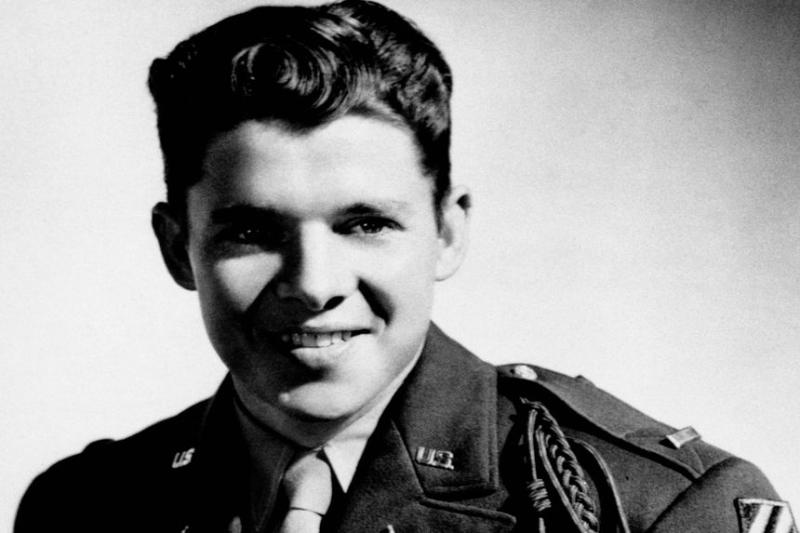'Against All Odds' Review: With Valor, Skill and Luck - WSJ
By: Jonathan W. Jordan (WSJ)



When not planning the invasion of Europe, Gens. George C. Marshall and Dwight D. Eisenhower relaxed by reading western novels. Simple horse-and-gun tales with no complex character arcs, crisscrossed plotlines or moral subtleties. Sometimes you just need a good action story.
The historian Alex Kershaw, who chronicled the D-Day sacrifice of a Virginia town in "The Bedford Boys" (2003) and followed an Arizona soldier to a German death camp in "The Liberator" (2012), returns to front-line combat for his latest narrative. "Against All Odds" is a progression of vignettes from the highly decorated Third Infantry Division. It follows men who, as the title suggests, defied improbable odds to survive two years of hard fighting against Hitler's troops, from the 1942 landing in North Africa to V-E Day in Germany.
The book plunges straight into its story, bypassing lengthy character back stories in favor of a “see you on the beach” leap into the Moroccan surf. Only gradually are we introduced to four larger-than-life soldiers as we follow them across miles of blood, dust, sand and snow, through Sicily, Italy, France and Germany.
Pvt. Audie Murphy, a short, baby-faced youth from Texas, would join the Third Division and become America’s most famous Medal of Honor recipient. In Mr. Kershaw’s telling, young Murphy morphs into a Billy the Kid in khaki. When a soldier questioned why Murphy calmly leveled his carbine and gunned down two German officers trying to escape on horseback, Murphy retorted, “That’s our job, isn’t it? They would have killed us if they’d had the chance. That’s their job. Or have I been wrongly informed?”
Murphy is joined by Lt. Maurice “Footsie” Britt, a three-sport athlete from Arkansas who, before the war, played for the Detroit Lions. A sober leader, he is careful of the lives of the men he leads. “There had been many occasions,” Mr. Kershaw tells us, “when Britt had asked God to spare him, when he had prayed he would survive.” But as he waited for one German counterattack, “he beseeched the Almighty on behalf of his men. ‘Lord, lead me. Don’t let me do anything that will cause any of these boys to be killed unnecessarily.’ ”
Britt was pious, but not soft. At Italy’s Mount Rotondo, he fought off a company of elite German paratroopers. “Britt went on a rampage, intent on winning this deadly game, it seemed, all on his own,” Mr. Kershaw writes. He tossed “one grenade after another. . . . When he ran out of ammunition, he picked up any weapon he could find, German or American, so long as it held bullets. Britt killed several Germans in a machine-gun nest and moved on to another.” He would receive the Medal of Honor, earn his captain’s bars and go on to fight in the slaughterhouse of Anzio.
Pvt. Michael Daly of Connecticut, an Irish Catholic, transferred to the Third Division after fighting his way ashore at Omaha Beach. Of Daly’s harrowing baptism by fire on D-Day, we learn: “His pack was soaked, weighing him down, slowing him. Then the horrors began. A man nearby was killed, his head blown clean off,” we are told. “Daly spotted a mine, an obstacle, a corpse floating by. Then there was a vicious snapping, a pop-pop-pop, as machine-gun bullets whipped above his head.” As Daly recalled: “It was not a question of overcoming my fear, but of trying to control it.”
Lt. Col. Keith Ware hailed from working-class Colorado. On the slopes of the Vosges Mountains in France, while the Battle of the Bulge raged to the north, Ware found his moment when he led two dozen cooks, clerks and drivers to rescue a company pinned down near the fortified village of Sigolsheim. Leading an attack from a tangled French vineyard, Ware “grabbed a Browning Automatic Rifle, the most powerful gun he could fire while moving,” and dashed up a hill crowded with Hitler’s finest. “Ware was a man possessed,” Mr. Kershaw writes. “He kept moving, closing on another machine-gun position. Germans had their hands in the air. No need to kill them. There was no more ammunition left in the BAR and so Ware grabbed an M-1 rifle from a wounded man and kept firing.” After he silenced four machine-gun nests and “personally killed five enemy soldiers and captured about twenty others,” his rescued company took the town.
The stories of Murphy, Britt, Daly, Ware and several secondary characters are largely unconnected, except for their association with the 15th Infantry Regiment. They don’t run into each other much, and they aren’t foxhole buddies. Their common threads are the valor, skill and luck that kept most of them alive and earned them their country’s highest honor.
While “Against All Odds” approaches the body count of Cormac McCarthy’s “Blood Meridian,” Mr. Kershaw trains a sympathetic eye on men plagued with torments beyond the obvious hazards of bullets and grenades. “Hunger and heat and terror had pushed many to the edge and beyond,” he writes of the men fighting in Sicily. “One man had dug up a can of hash he’d nonchalantly thrown away days before, scraped away the flies and ants, and wolfed it down.”
In Italy, exhaustion took its toll. “Mount Nicola had fallen but to the north lay yet another mountain range, wreathed in ghostlike clouds and soaking mists. The slog continued, the ordeal seemingly without end, surely designed to break the spirit.”
One of Mr. Kershaw’s strengths as a historian is tethering his story to first-person accounts. Drawing upon letters, memoirs, diary entries and oral histories, his book retains an authentic feel while showcasing the gritty action you would expect in films such as “Saving Private Ryan” (1998) and “To Hell and Back” (1955)—the latter starring Audie Murphy as himself.
At its best, “Against All Odds” achieves a pitch-perfect balance between a ground view of combat and the seismic forces that drew men like Britt and Murphy to the killing grounds of Europe. Its prose is sharp, efficient and entertaining, its characters thoroughly human. Though written as an action story, it is an eloquent testament to men who earned the Medal of Honor in America’s war to liberate Europe.
Mr. Jordan is the author of “Brothers, Rivals, Victors: Eisenhower, Patton, Bradley, and the Partnership That Drove the Allied Conquest in Europe.”


